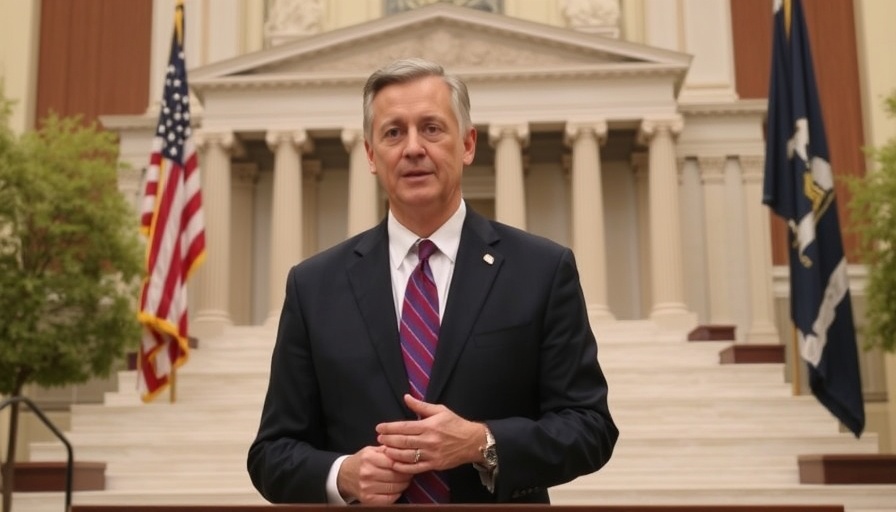
Gov. Cox's Changing Stance on Chief Justice Appointment
In a surprising turn of events, Utah's Governor Spencer Cox is on the verge of reclaiming a power he initially vetoed: the appointment of the chief justice of the Utah Supreme Court. The original bill, which was rejected by Cox due to concerns regarding judicial independence, is now being revised and will be reconsidered in a special legislative session scheduled for September 15. The proposed changes have seemingly shifted the governor's position, making him amenable to appoint the chief justice despite his earlier objections.
The Role of Legislative Power in Judicial Matters
Senate Majority Whip Chris Wilson, R-Logan, has emerged as a key proponent of this revised legislation. His bill now suggests that the chief justice would be appointed for an eight-year term, requiring Senate confirmation, as opposed to the previous version that mandated reappointment every four years. During a recent press conference, Wilson claimed that Cox is now "completely on board" with the new proposal, highlighting the significant shift in dynamics between the governor's office and the legislature regarding judicial appointments.
Why Judicial Independence Matters
Governor Cox's initial veto highlighted crucial concerns about the independence of the judiciary. His defeat of the earlier bill stemmed from the belief that frequent reappointments would compromise a justice’s ability to rule impartially. "It would require the chief justice to look over their shoulder and may lead them to compromise their independence," he explained. This sentiment echoes a broader issue within many state governments, where the balance of power between the executive, legislative, and judicial branches often sparks heated debate.
A Broader Push for Legislative Control
The drive to ensure legislative authority over judicial appointments is perceived as part of a larger trend among Republican lawmakers in Utah. Recent judicial rulings have blocked several controversial laws that the Republican supermajority sought to implement, including restrictions on abortion and measures limiting voter-passed initiatives. Critics suggest this push aims to tighten the legislature's grip on the judiciary amidst these legal challenges.
Looking Ahead: Potential Impact on Utah's Judiciary
If the bill passes in September as expected, it would significantly alter the landscape of judicial appointments in Utah. The chief justice would no longer be selected by peers, negating a system designed to uphold judicial independence. Rather, this control could foster a judicial environment where justices feel pressured to align their rulings with the executive or legislative stances, raising alarms about the integrity of court decisions.
Conclusion: Navigating the Future of Judicial Independence
The unfolding saga of Governor Cox's potential appointment power invites significant discussion about the future of justice in Utah. The legislative moves to increase control over judicial appointments indicate a notable shift in power dynamics and set a precedent that could resonate beyond state lines. As Utah prepares for this special session, the implications of these decisions will likely reverberate through the judicial system and impact how laws are interpreted and enforced in the coming years.
 Add Row
Add Row  Add
Add 




Write A Comment